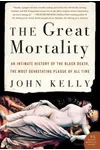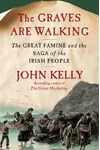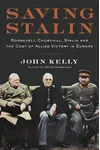Picture a Boston-born storyteller who breathes life into history’s darkest moments—meet John Kelly! With a knack for weaving meticulous research into gripping narratives, Kelly has become a master of narrative history, bringing events like the Black Death and the Irish Potato Famine to vivid life. His books, celebrated by scholars and readers alike, make the past feel as immediate as today’s headlines.
Kelly’s ability to transform complex historical events into accessible, novelistic tales has earned him praise from figures like President Bill Clinton and historian John M. Barry. Whether you’re a history buff or just love a good story, Kelly’s work invites you to step into the shoes of those who lived through humanity’s toughest trials.
The Making of John Kelly
Born in Boston, Massachusetts, John Kelly grew up with a deep curiosity about the world. His early career as a medical journalist honed his research skills, but his heart lay in history. Inspired by writers like Max Hastings and Richard Rhodes, Kelly dreamed of crafting European historical narratives. This passion led him to trade the stability of journalism for the ambitious pursuit of narrative history, a leap that would define his career.
Settling in New York City and Berkshire County, Massachusetts, Kelly found the perfect backdrop for his work. His cozy office in a 1772 country house, once home to early American settlers, became a haven for diving into the past. From there, he began crafting stories that would captivate a global audience.
John Kelly’s Unforgettable Stories
Kelly’s breakthrough came with The Great Mortality: An Intimate History of the Black Death (2005), a chilling yet captivating account of the 14th-century plague that killed half of Europe. With vivid prose, he explores not just the disease but its social ripples, like how it empowered widows to run businesses better than their late husbands. Critics hailed its blend of scholarship and storytelling.
In The Graves Are Walking: The Great Famine and the Saga of the Irish People (2012), Kelly tackles the Irish Potato Famine of the 1840s, a tragedy that claimed over a million lives and drove millions to emigrate. His lyrical narrative exposes the political greed and British policies that worsened the crisis, earning accolades for its depth and empathy. President Clinton called it a “cautionary tale” for ideological missteps.
Other works, like Never Surrender, about World War II’s early days, and Three on the Edge, a dive into medical miracles, showcase Kelly’s versatility. His style—deeply researched, fast-paced, and intimate—makes history feel personal, as if readers are walking alongside the people who shaped it.
Why John Kelly Matters
John Kelly’s impact lies in his ability to humanize history. By blending rigorous research with novelistic flair, he makes events like the Black Death and the Irish Potato Famine relatable to modern readers. His work has influenced how narrative history is written, inspiring both historians and casual readers to see the past as a living story, not a dusty textbook.
Kelly’s books also resonate today, offering lessons on resilience and the consequences of policy failures. His portrayal of Irish immigrants remaking themselves in America speaks to the enduring power of hope. For anyone seeking to understand humanity’s triumphs and tragedies, Kelly’s stories are a must-read.
- Born: Boston, Massachusetts
- Key Works: The Great Mortality, The Graves Are Walking, Never Surrender
- Residences: New York City and Berkshire County, Massachusetts
- Influences: Max Hastings, Richard Rhodes
Ready to travel back in time? Grab The Great Mortality or The Graves Are Walking and dive into John Kelly’s gripping world of narrative history!


